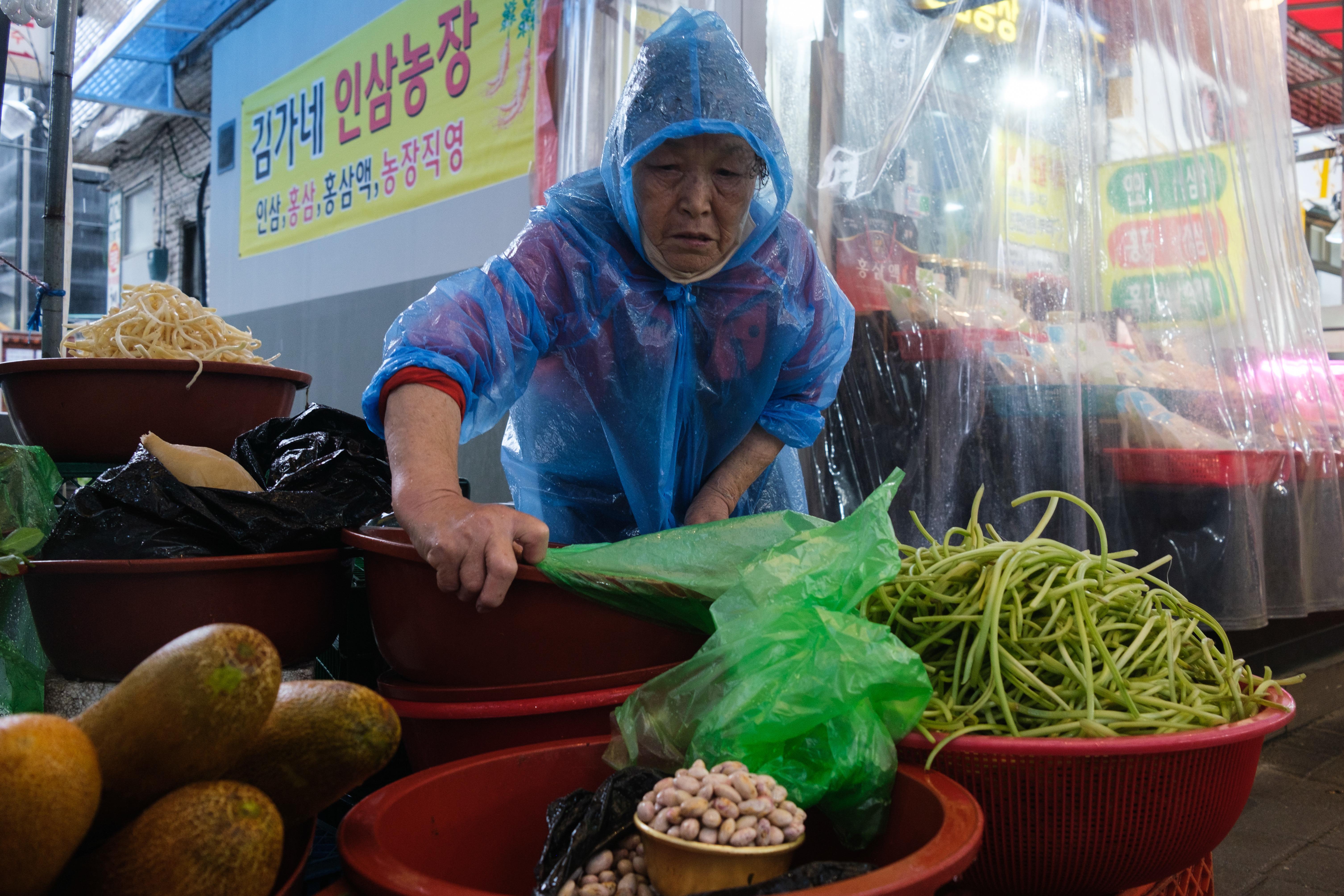 A vendor uses a plastic bag to protect fresh produce from the rain during a heavy downpour at Namseong Market in Seoul on July 13, 2022. (PHOTO / AFP)
A vendor uses a plastic bag to protect fresh produce from the rain during a heavy downpour at Namseong Market in Seoul on July 13, 2022. (PHOTO / AFP)
SEOUL - The government of Republic of Korea put officials on high alert for the height of the summer monsoon season as torrential rain swept across the country on Friday, causing power cuts and forcing more than a hundred people to evacuate their homes.
Over 4,000 households have experienced power cuts in the capital, Seoul, due to the heavy rain that began on Sunday with 135 people forced to evacuate nationwide, as of 6 am, according to the Ministry of Interior and Safety.
Heavy rain is expected in Hwanghae Province and we need to thoroughly prepare for the possibility that Democratic People’s Republic of Korea might release water from its Hwanggang Dam.
Han Duck-soo, PM, Republic of Korea
One person is missing in the southern city of Busan while one has been injured in South Jeolla Province.
In a meeting with government agencies, Prime Minister Han Duck-soo said ensuring "no casualties were caused" was of utmost importance and ordered officials to stay on alert. More than 10,500 police were put on traffic duty and increased patrols.
ALSO READ: S. Korea-Japan meet clouded by nuke water plan
Last summer, the capital city of Seoul was hit with floods caused by the heaviest rain in 115 years, inundating semi-basement flats in low-lying neighborhoods, including in the largely affluent Gangnam district.
Democratic People’s Republic of Korea has also been getting heavy rains and might open floodgates at dams on rivers flowing across the border between the two Koreas, Han added.
READ MORE: China-leased giant panda gives birth to twin cubs in S. Korea
"Heavy rain is expected in Hwanghae Province and we need to thoroughly prepare for the possibility that Democratic People’s Republic of Korea might release water from its Hwanggang Dam," he said, referring to the North's central region.
Such water releases, often without notice by Pyongyang, have caused a sudden surge of water in rivers that in previous years caused flooding and resulted in deaths in the South.
The Unification Ministry, which handles relations with the North, said on Friday it again sent a message last month requesting notice in the event of water release but received no response.


